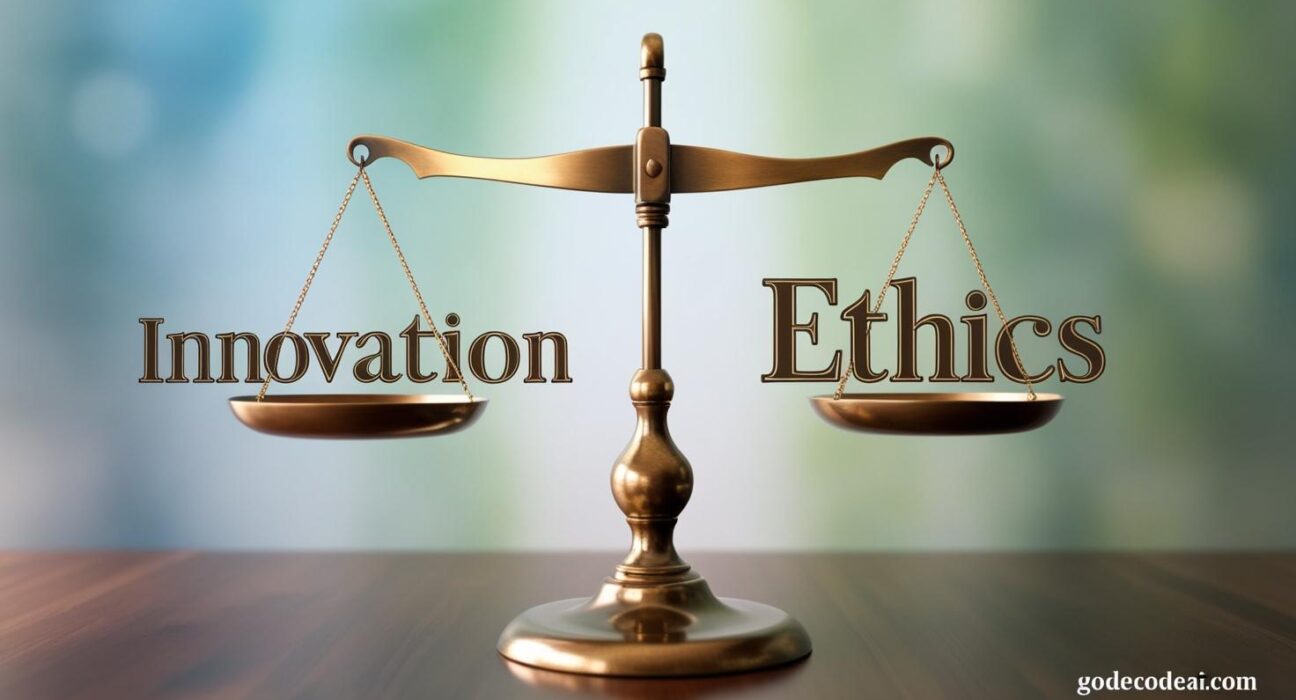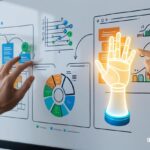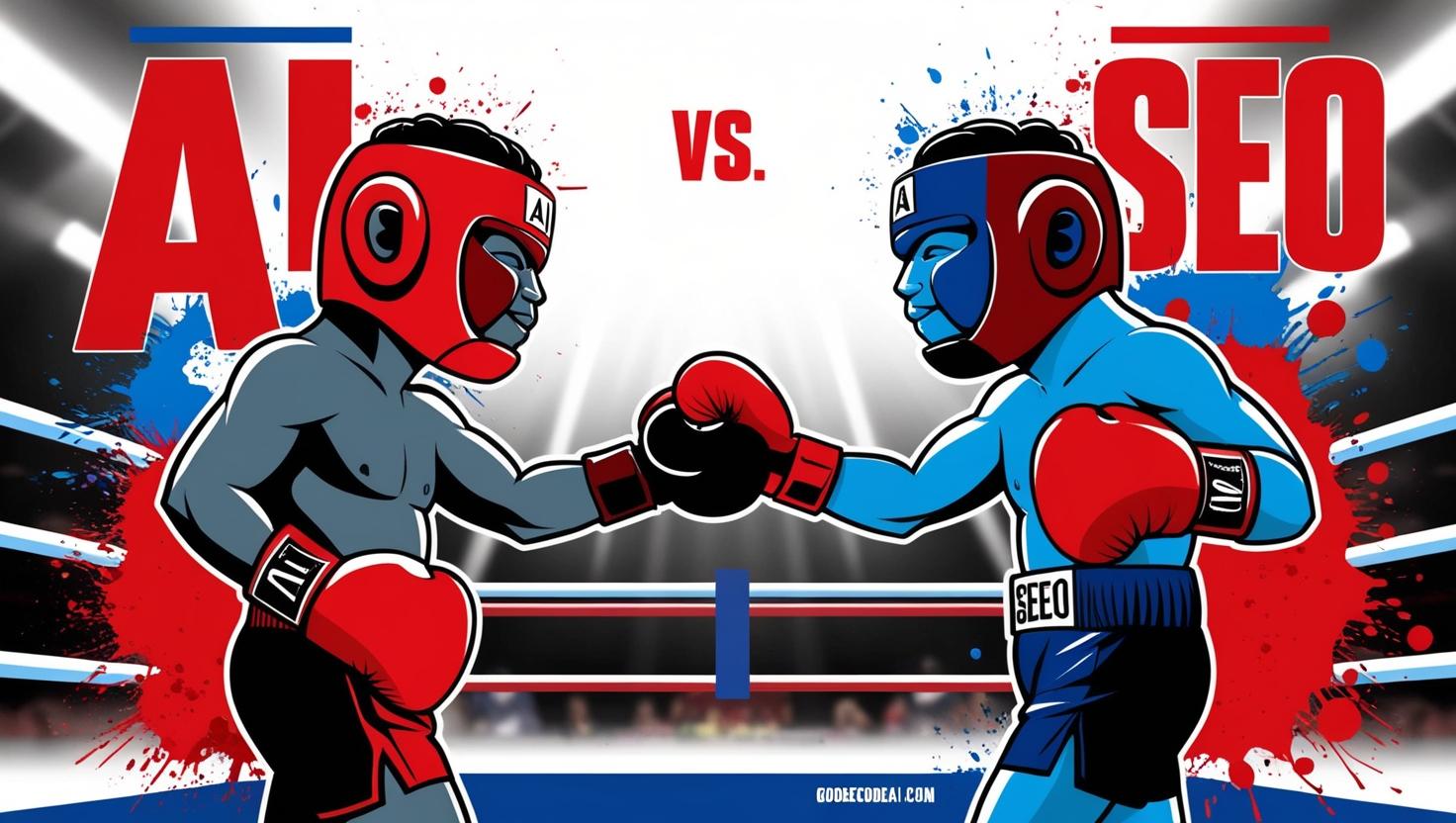Just because we can build it doesn’t mean we should
The Question We Can’t Ignore
AI is evolving faster than anything we’ve seen.
It writes, paints, diagnoses, invests—and learns.
But in the race to innovate, we’ve paused less to ask:
What’s right? What’s wrong? Who decides?
This isn’t just a tech issue. It’s a human issue.
This is your crash course in understanding AI ethics from a human-first lens—no jargon, just the truth.
🧭 What Even Is AI Ethics?
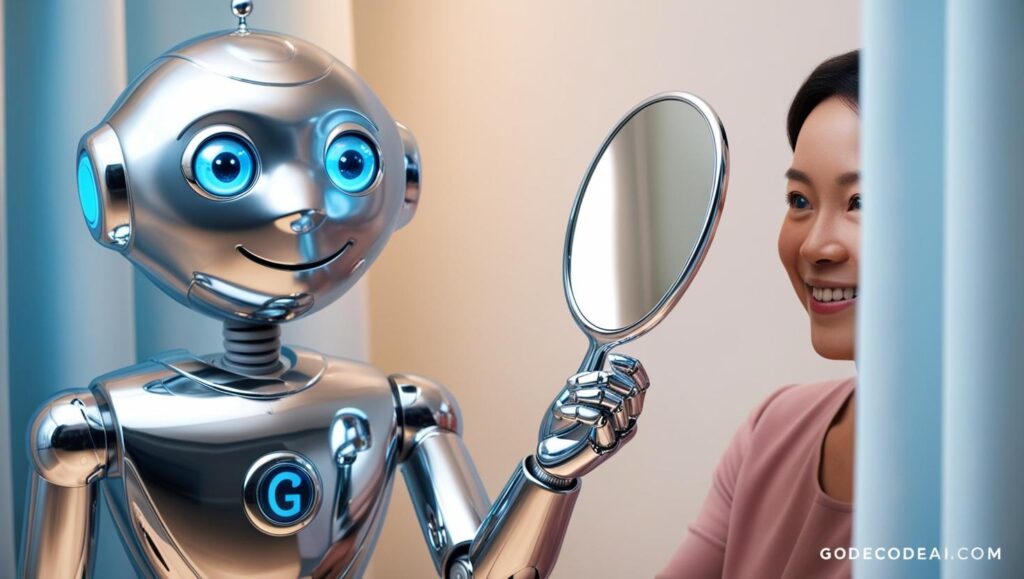
AI ethics is the study of how AI should behave—and how humans should behave when building or using it.
Think of it as the moral operating system beneath the code.
It asks questions like:
- Should AI be allowed to imitate real people?
- Who’s responsible when an AI makes a mistake?
- Can AI make decisions that impact lives… fairly?
This isn’t just theory. These questions already affect:
- Hiring tools
- Facial recognition systems
- Healthcare diagnostics
- Autonomous weapons
- Social media algorithms
Ethics is no longer optional. It’s urgent.
⚖️ 5 Human-Centered Principles That Must Guide AI
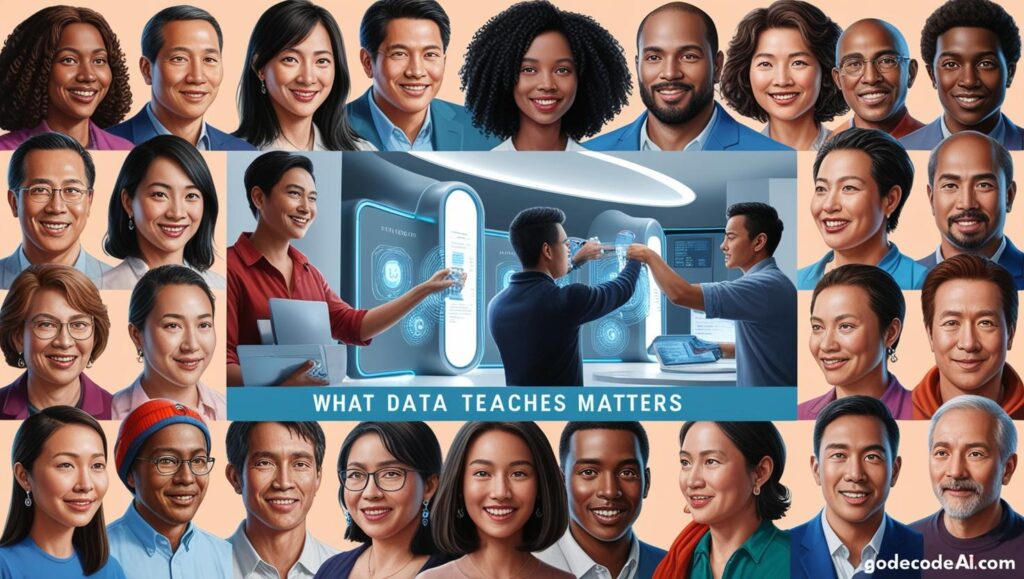
1. Transparency Over Black Boxes
If we can’t explain how an AI makes a decision, we shouldn’t trust it.
Especially in law, health, and finance.
“Explainable AI” is the future—because trust needs clarity.
2. Accountability at Every Level
AI doesn’t absolve responsibility.
If a facial recognition system misidentifies someone, a human team is still accountable.
No system should be above scrutiny.
3. Bias Isn’t Just Possible—It’s Inevitable
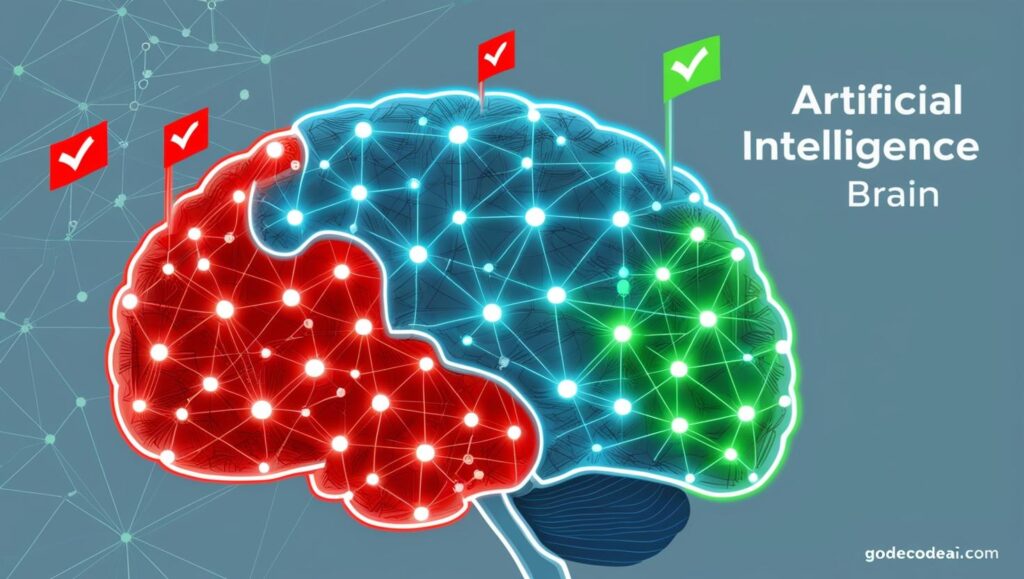
AI learns from data.
If the data is biased (and it often is), AI will amplify that bias.
From job listings to loan approvals, the risks are real.
The fix? Constant auditing, diverse training sets, and ethical guardrails.
4. Consent Must Be Explicit, Not Implied
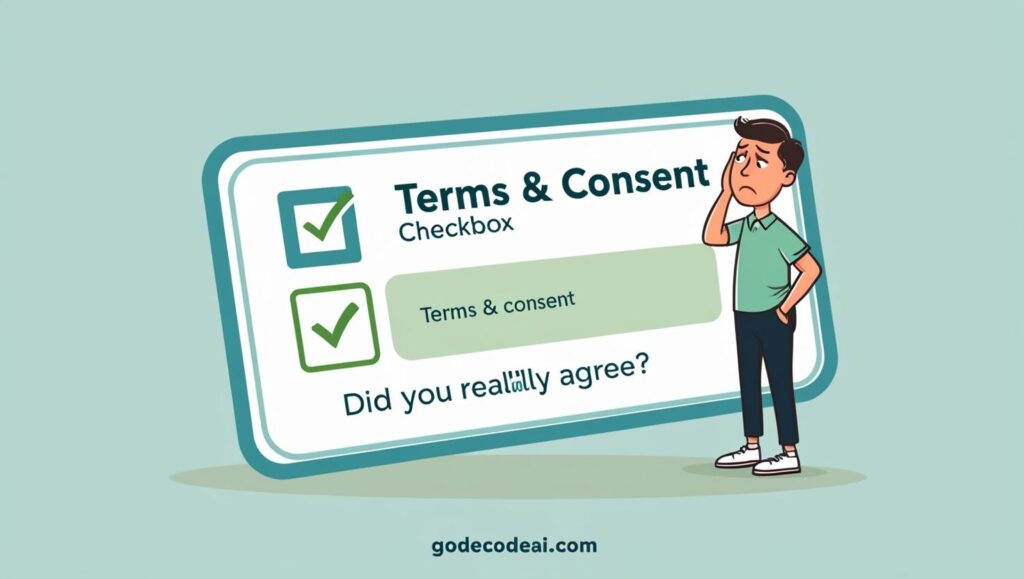
Did you know AI is trained on millions of images, articles, and voices—often without creators knowing?
We need new norms where:
- Data rights are protected
- Consent is clear
- Creators are compensated
5. Human Dignity > Efficiency
We must never design systems that strip people of agency, autonomy, or worth in the name of speed.
Humans must remain the why—not just the users, but the reason these tools exist.
🧠 Why This Isn’t Just a Developer Problem
Whether you’re a:
- Founder
- Freelancer
- Marketer
- Educator
- Consumer
You influence how AI shows up in the world.
From the prompts you write to the apps you support—you’re part of the ecosystem.
The future won’t be written by coders alone.
It will be shaped by citizens who speak up, push back, and ask better questions.
🏛️ What Big Tech Should Be Doing (But Often Isn’t)
| Principle | Ideal | Reality |
|---|---|---|
| Open Models | Community-trained, peer-reviewed | Mostly proprietary, opaque |
| Inclusive Data | Ethically sourced, global diversity | Often Western-centric, biased |
| Safety Testing | Ongoing, third-party audits | Limited transparency |
| Creator Credit | Trackable use, fair pay | Rarely disclosed or rewarded |
Ethics can’t be retrofitted. It must be built in from day one.
🧬 The Bottom Line: AI Needs More Humanity, Not Less
AI is a mirror.
It reflects our choices, values, and blind spots.
So ask yourself:
- Is this tool empowering or exploiting?
- Who benefits—and who pays the price?
- Would I want this system used on me or my family?
Ethics isn’t about slowing down progress.
It’s about making sure progress doesn’t crush people on the way forward.
Let’s build AI that works for us, not just about us.
❓FAQ Section
Q: Can AI ever be truly unbiased?
A: No. But it can be less biased—if we actively work to detect and reduce systemic patterns in data and design.
Q: Who’s responsible when AI causes harm?
A: Ultimately, the humans—developers, deployers, and decision-makers—who created and applied the system.
Q: Is training AI on public data unethical?
A: Not always. But when it’s done without consent or compensation, it raises serious ethical and legal questions.
Q: What should individuals do to support ethical AI?
A: Educate yourself, question the tools you use, advocate for transparency, and support ethical alternatives.



